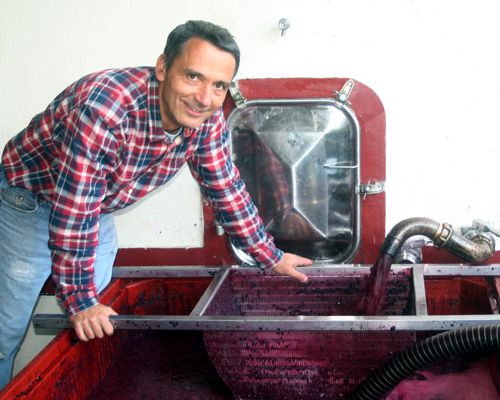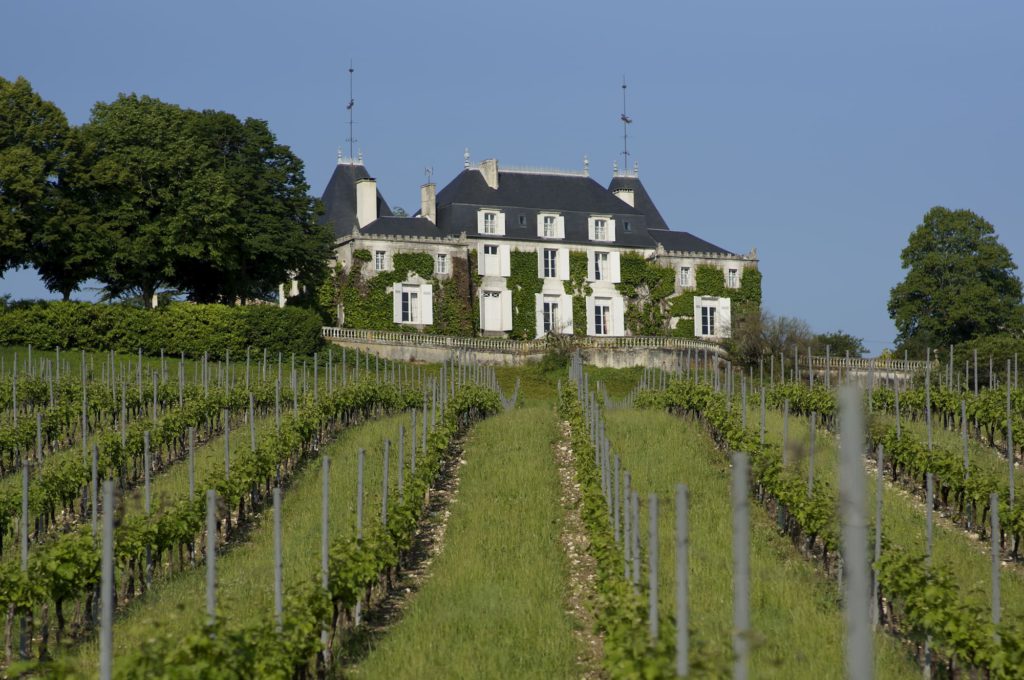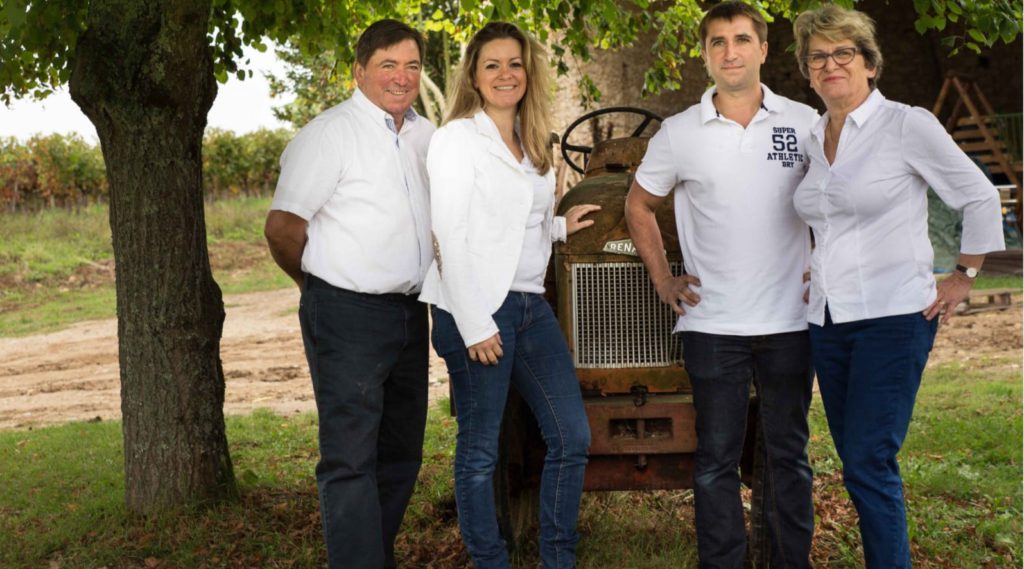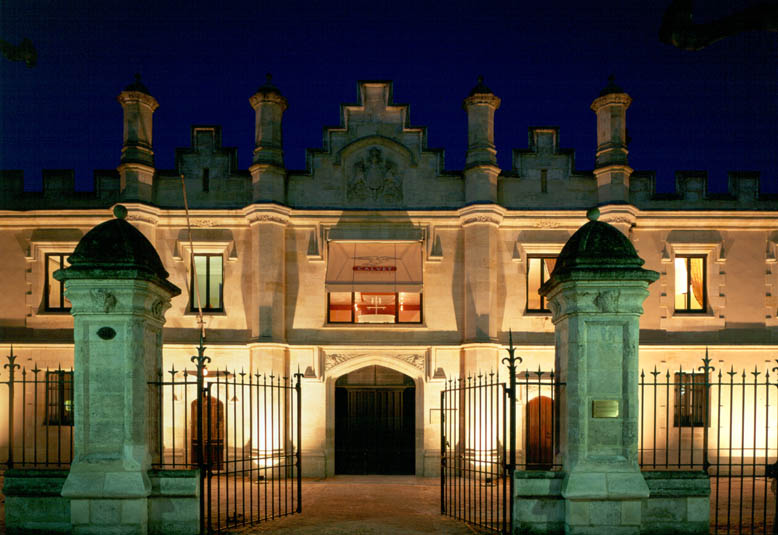We tend to think of big, bold, masterful wines when we think of Bordeaux, and expensive ones too. We meet, virtually, some innovative winemakers with a refreshing new take on wines from one of France’s most prestigious regions.
Château Rioublanc
Philippe Carretero is on Zoom from his estate, inherited from his father who restored it in 1963. Château Rioublanc is a lot older than that though.
Located in the north-east of Bordeaux, Château Rioublanc dates back to the 19th century producing everything from dry whites to sweet wines, and crémant and growing a wide variety of grapes: Merlot, Cabernet Sauvignon, Cabernet Franc, Malbec, Sauvignon Blanc, Sémillon and Colombard.
‘I am sixty years old and still learning,’ he says.

He, and I, have a bottle each of Château Rioublanc Crémant Brut Nature, and Château Rioublanc Bordeaux Blanc 2021 in front of us.
Like all the wines on the estate they are produced organically ‘for me wine is made in the vineyard, not the cellar, says Phllippe, swirling a glass of the Crémant.
Crémant wine is produced using bottle fermentation, the same as Champagne, but of course cannot legally be called champagne. They do not need to be as bubbly as Champagne though, which does indeed make them creamier. No sugar is added to the bottles (dosage) to cause extra fermentation, so they are known as Brut Nature.
Phillippe explains that the grapes are hand-harvested in the morning for maximum freshness, but as it’s getting harder to find workers he is looking at mechanical solutions that can be as gentle and also can keep the grapes colder on their way to the winery. Gentle too is the pressing which looks for quality not quantity, slow fermentation finishes the job.
It’s an excellent Crémant: Phillipe enjoys the freedom to the mix of grapes year on year, this year is Sémillon 50%, Sauvignon 35%, Colombard 15% and with its gentle acidity and youthfulness, it’s an excellent aperitif with crisp, flowery, yeasty notes. I’d happily drink it with fish and seafood too.
Philippe’s second wine is Château Rioublanc Bordeaux Blanc 2021, mostly made from Sauvignon grapes. This is mostly picked by machines and at night when it’s cooler, ‘we are usually finished by 9 a.m.,’ Phillipe says. After pressing by pneumatic press, the juice is left to stabilise for four to five days before fermentation and left in vats for two months after that.
2021 was a cooler year and that accentuated the aromatics and resulted in a very modern Bordeaux Blanc that’s lively and while drinkable on its own, had me looking in my cookbooks for a pasta recipe with cheese and cream that would go so well with this wine well-chilled.
Château Rioublanc Crémant Brut Nature
£15.49 from Vinceremos
Château Rioublanc Bordeaux Blanc 2021
£10.99 from Vinceremos
Parenchere
East of Bordeaux on the edge of the departemente Parenchere is a large estate mainly on slopes. Like so many forward-looking vineyards they are converting to organic and are currently in their second year with considerable investment in the soil and machinery.
Julia Gazanio, the current sales director at Château de Parenchère, and granddaughter of Raphaël Gazaniol, who renovated the estate in 1958 tells me that going organic is simply common-sense.
Although primarily known for its reds, they moved to whites six years ago and are hoping to produce their own crémant soon having made their first rose in 2020. They make sulfite free wines and are trying to do more interesting modern wines. Wines that are easier drinking and less need for ageing
We try a Château de Parenchère, Bordeaux Rosé 2021 and a Château de Parenchère, Bordeaux Clairet both from Peter Osborne Wine at around £13 each.
Clairet is not a typo, this wine is darker than rose but not as dark as a red wine and not as heavy as you might think. A long maceration before fermentation gives it the deeper colour.
Everything is done at low temperatures to keep all the fruitiness, and it’s bottled within two months of the wine being made. This means there is still some fermentation going on in the bottle which makes it extra refreshing but it only really can be stored for a year.

Word is spreading on Clairet which went out of favour. People liked the clairet 20 years ago some
Parenchère now make 80k bottles a year, but it’s still not very well known and they’re one of the few that make it.
Still with people getting a bit bored with rose, Clairet is coming back and it’s particularly good with spicy cuisine which helps out with the eternal dilemma in an Indian restaurant – risk wasting a decent wine or stick with Cobra,
Strawberry and raspberry notes, herby and spicy on the palate, refreshing but not too light, Clairet is clearly coming back.
We ended with two more wines, Château de Bonhoste “Prestige” 2020 Bordeaux Blanc
(£16 from Hourlier Wines) and a Calvet Crémant Bordeaux brut rosé 2018
£10.50 from Ocado.
Château de Bonhoste

Château de Bonhoste has been owned by the Fournier family for five generations, and is today owned by Sylvaine and Yannick, alongside their parents Colette and Bernard.
The current estate, which is located on clay-limestone soil to the east of Bordeaux, facing Saint-Emilion and close to the Dordogne valley, boasts 44 hectares.
The estate was granted the High Environmental Value certification in 2013, evidencing the work they put in on four environmental pillars: preserving the biodiversity, fertilisation and water management, and having a strong phytosanitary strategy.
The “Prestige” 2020 Bordeaux Blanc has what you’d expect from a Sauvignon Blanc – Semillon blend, a clear minerality with that ‘licking a stone’ taste that’s so familiar and pleasing.
A great example of Bordeaux’s move away from Muscadelle, Ugni Blanc and Colombard to wines with more immediate flavour, and it has to be said, a bigger market.
Calvet

Calvet is a very big noise in France and is spread across several French regions. Jean-Marie Calvet, who set up the company in 1818, originally in the Rhône valley, before beginning the expansion into Bordeaux in 1823.
Today, Calvet dominates the international wine market, with their 2014 Sauternes having been served to the judges at the Nobel Prize ceremony, but that doesn’t mean mass-market boring wines.
Calvet Crémant Bordeaux Brut Rosé 2018 is just £10.50 from Ocado and can punch above its weight with ease. Classic strawberry and raspberry flavours and soft bubbles make this another youthful take on a classic.
90% Cabernet Sauvignon and a touch of Merlot is in there, and like all Crémant de Bordeaux wines, it can’t be disgorged for at least nine months after bottling and must wait for a year before being sold.
A touch of acidity makes this a grown up fizz, but at £10 it’s also a bargain.
So check out some of these new and not so new Bordeaux wines, a wind of change from France.
